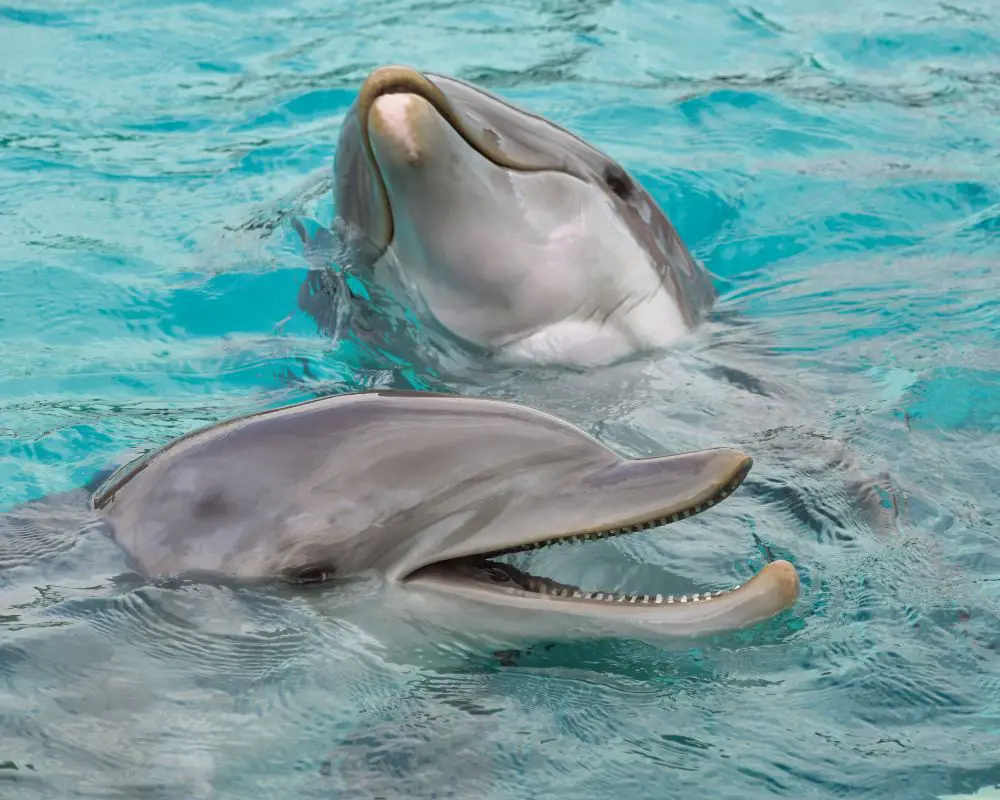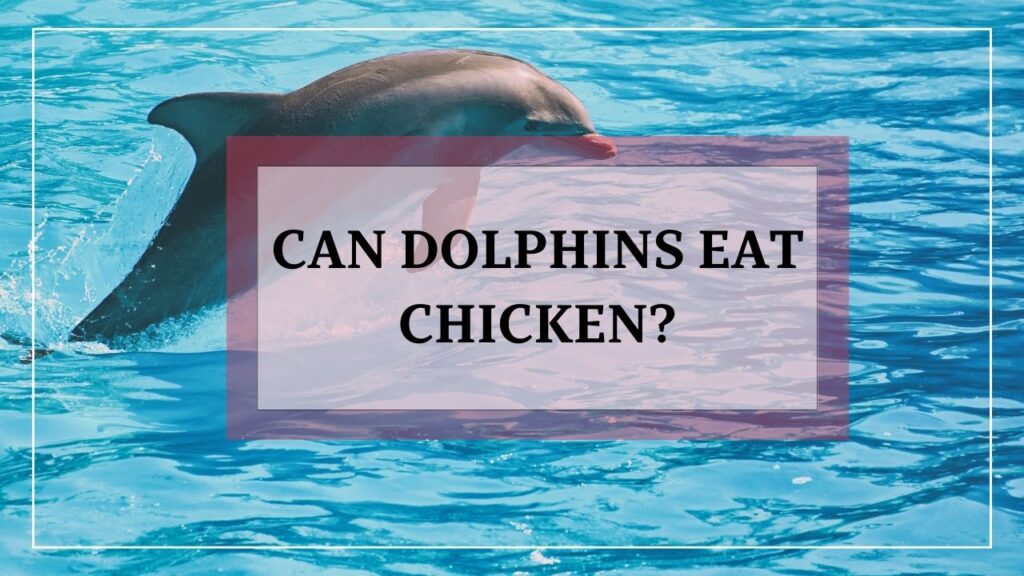As intelligent and playful creatures, dolphins have long captured the imagination of humans, and their diet is just one aspect of their lives that has piqued our curiosity.
Some people have even asked if dolphins can eat chicken, which may seem like an odd question at first.
But when you consider the variety of foods that dolphins consume in the wild, it’s not entirely unreasonable to wonder if they could enjoy a tasty chicken nugget or two.
In this blog post, we’re going to explore the diet of dolphins and answer the question of whether they can eat chicken.
Are you ready to dive into the fascinating world of dolphin diets? Let’s get started!
Can Dolphins Eat Chicken?

The short answer is no, dolphins do not eat chicken. While these intelligent marine mammals are known to have a diverse diet, chicken is not a part of it.
But why would someone even ask this question in the first place?
Well, it’s not entirely uncommon for people to assume that animals will eat the same types of foods as humans. And since chicken is a staple in many of our diets, it’s not surprising that some may wonder if dolphins could also enjoy this tasty bird.
However, when it comes to the nutritional needs of dolphins, chicken just doesn’t make the cut. In the wild, dolphins feed on a variety of prey, including fish, squid, and crustaceans. These foods provide the nutrients and vitamins that dolphins need to thrive in their natural habitat.
While chicken may be a good source of protein and other nutrients for humans, it’s not an appropriate food for dolphins. In fact, feeding them chicken or other types of human food can be harmful to their health.
So, if you’re ever lucky enough to encounter a dolphin in the wild, please don’t try to feed them chicken or any other human food. Stick to enjoying their playful antics and leave the feeding to the experts who understand their dietary needs.
Remember, just because something is delicious to us doesn’t mean it’s good for every living creature. Keep this in mind the next time you’re tempted to share your food with our aquatic friends.
What Do Dolphins Eat in Captivity?
While wild dolphins have a diverse diet that varies depending on their location and available prey, the diets of captive dolphins are often more limited and controlled.
This is because the food that captive dolphins eat is carefully chosen to ensure they receive the nutrients they need to maintain their health and well-being.
The diets of captive dolphins are typically made up of a combination of fish, squid, and other marine animals. The specific types of food that are fed to captive dolphins can vary depending on their age, size, and health status.
Fish such as herring, mackerel, and capelin are commonly fed to captive dolphins, as they are a good source of protein and other important nutrients. Squid is also a popular food choice for captive dolphins due to its high nutritional value.
In addition to whole fish and squid, some captive dolphins are also fed a diet of gel-based fish formula or pellets.
These types of food are often used as a supplement or replacement for whole fish when it is not readily available or when there is concern about the sustainability of wild fish populations.
While the diets of captive dolphins are carefully monitored and controlled, there are concerns and criticisms related to the nutritional value and variety of their diets.
Some experts have argued that the diets of captive dolphins lack the variety and complexity of their wild counterparts, which could lead to nutritional deficiencies and other health problems.
Others have raised concerns about the welfare of captive dolphins who may be fed a diet that is not appropriate for their specific needs.
For example, dolphins that are forced to perform in shows or interact with tourists may be fed a diet that is high in calories and low in nutrients, which can lead to obesity and other health issues.
Should You Feed A Dolphin? Risks and Benefits of Feeding Dolphins
Feeding dolphins can be a fun and exciting experience, but it’s important to understand the potential risks associated with this activity.
It’s also important to understand why it’s crucial to avoid feeding wild dolphins and any potential benefits of feeding captive dolphins.
Potential Risks Of Feeding Dolphins
Feeding wild dolphins can actually harm them, as it can disrupt their natural feeding patterns and lead them to rely on humans for food. This can cause them to lose their hunting skills and become more vulnerable to predators.
It can also lead to aggression towards humans as they become more dependent on them for food.
Feeding wild dolphins can also lead to health problems, as the food that people give them may not be nutritionally balanced or appropriate for their digestive system.[1]
Additionally, dolphins may accidentally ingest foreign objects such as plastic or metal which can cause serious health issues.
In addition to the potential harm to dolphins, feeding wild dolphins is also illegal in many areas. Violating these laws can result in fines or even imprisonment.
Importance Of Avoiding Feeding Wild Dolphins
It’s important to avoid feeding wild dolphins in order to protect their natural feeding patterns and behaviors. By feeding them, humans are essentially interrupting their way of life and causing potential harm to these intelligent creatures.
Furthermore, by feeding wild dolphins, humans are also putting themselves at risk. Dolphins may become aggressive towards humans in search of food, potentially leading to injury or even death.
Potential Benefits Of Feeding Captive Dolphins
Feeding captive dolphins can have some potential benefits, such as enabling trainers to monitor their food intake and ensure that they are receiving the proper nutrients.
This can also help to reduce the stress that captive dolphins may experience due to changes in their environment or routine.
However, it’s important to note that the diets of captive dolphins should still be carefully managed and monitored to ensure their health and well-being.
Conclusion
In summary, we answered the question of whether can dolphins eat chicken. As previously mentioned, we really don’t recommend feeding your dolphin chicken at all.
Feeding dolphins, whether in the wild or in captivity, can have potential risks and benefits. Feeding wild dolphins can disrupt their natural feeding patterns and cause harm to their health and behavior.
Feeding captive dolphins, on the other hand, can enable trainers to monitor their food intake and reduce their stress levels, but their diets should still be carefully managed.
Thank you for reading and I hope this post has been helpful in answering your questions about whether or not dolphins can eat chicken!

